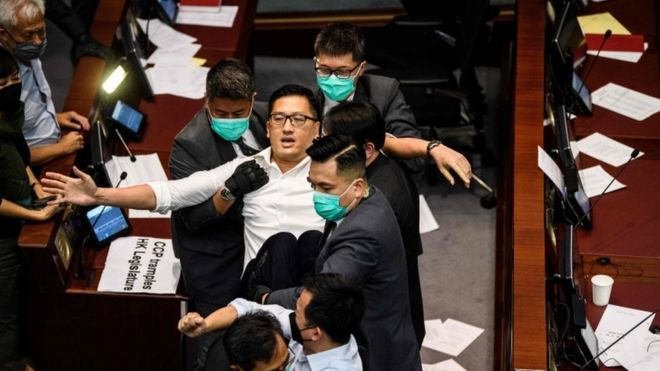China proposes controversial Hong Kong security law

China is proposing to introduce a new security law in Hong Kong that could ban sedition, secession and subversion.
The move is likely to provoke strong opposition internationally and in Hong Kong, which was last year rocked by months of pro-democracy protests.
China's delayed National People's Congress, its legislature, will debate the issue when it opens on Friday.
Chinese media said the move defended national security, but opponents said it could be the "end of Hong Kong".
Demonstrators in Hong Kong have repeatedly protested against what they see as a gradual erosion of the territory's autonomy by the communist lead government in Beijing.
The BBC's Robin Brant, in Shanghai, says that what makes the latest proposal so incendiary is that the Beijing government could bypass Hong Kong's elected officials and simply impose the changes.
The last British governor of Hong Kong, Chris Patten, called the move a "comprehensive assault on the city's autonomy".
President Donald Trump said the US would react strongly if China followed through with its proposals.
The Hong Kong dollar dropped sharply on Thursday in anticipation of the announcement.
What will the NPC do?
The issue has been introduced on the NPC agenda, under the title of Establishing and Improving the Legal System and Enforcement Mechanism of Hong Kong.
Hong Kong's mini-constitution, the Basic Law, which provides the territory certain freedoms not available on the mainland, does require its government to bring in a security law. It had tried to enact the so-called "sedition law" in 2003 but more than 500,000 people took to the streets and it was dropped.
A spokesman for the NPC said on Thursday that China was planning to improve on the "one country, two systems" policy that Hong Kong has observed.
Zhang Yesui said: "National security is the bedrock underpinning the stability of the country. Safeguarding national security serves the fundamental interest of all Chinese, our Hong Kong compatriots included."
إرسال تعليق